Digital Media Summer Institute 2012
Interdisciplinary research,
education and capacity building
24 Apr 2012
Short courses with UT Austin faculty in Lisbon and Porto.
Pre-registrations are open until May 25 for Lisbon courses and June 4 for Porto courses.
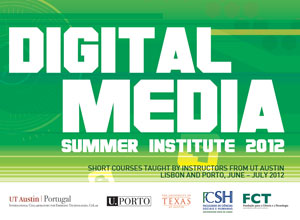 The sixth annual Summer Institute will offer students and professionals in Lisbon and Porto the opportunity to explore a variety of digital media topics ranging from animation to entrepreneurial journalism.
The sixth annual Summer Institute will offer students and professionals in Lisbon and Porto the opportunity to explore a variety of digital media topics ranging from animation to entrepreneurial journalism.
Renowned instructors from the University of Texas at Austin will teach six intensive short courses from two to three weeks in duration in June and July. The courses will be taught at the graduate level.
Program - How to Apply - Course Descriptions
Program at a Glance
See full course descriptions below.
Lisbon (FCSH/UNL)
Entrepreneurial Journalism
Rosental Alves, UT Austin - 4 to 15 June
Research Methods
Sharon Strover and Joe Straubhaar, UT Austin - 4 to 12 June and 21 to 29 June
Cinematography
Steve Mims, UT Austin - 18 June to 6 July
Porto (FEUP)
Experimental Animation
Jeanne Stern - 25 June to 13 July
Human Computer Interaction
Luis Francisco-Revilla, UT Austin - 2 to 21 July
How to Apply
Interested prospective applicants should send an email to carolina.enes@fct.unl.pt with the following information. The deadline is May 25 for Lisbon courses and June 4 for Porto courses.
- The name of the course to which they are applying on the subject line of the email (one email per course);
- An application letter of up to 350 words and CV (both in English);
- Full name, address, telephone number, age and highest degree achieved. Students must also indicate the course and institution they are attending.
Fees per course are noted with the course descriptions below. Selected applicants will be instructed on how to enroll and pay their fees.
Course Descriptions
Entrepreneurial Journalism
Rosental Alves
4 June to 15 June at FCSH/UNL, Lisbon
(14h-17h)
ECTS 3
Fee: 30€
This course for journalism graduate students and professionals focuses on the importance of entrepreneurship for the future of journalism in the emerging media ecosystem that has been formed by the Digital Revolution. It discusses relevant lessons that journalists can learn from the startup companies’ culture that characterizes the development of digital technology companies. It also focuses on the creation of innovative journalistic enterprises and initiatives (including the creation of non-profit organizations and the development of projects within traditional media companies). The class will study the impact of digital technologies on the news industry, both in terms of content production and consumption. Special attention will be given to the changes in business and distribution models and the ways people consume (and produce) news and information. The historical evolution of the business of journalism will also be examined, including the current challenges the industry is facing in adapting to the new media ecosystem. Through case study methods and testimonials of a few guest speakers (few American media-entrepreneurs via Skype and possibly a few locals), students will dissect journalistic initiatives based on innovative uses of digital technologies and then work on their own projects. The course culminates with the presentation of students’ projects of news enterprises for the digital age, including business plans, prototypes and/or demos.
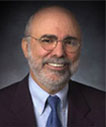 Rosental C. Alves is a Professor in the School of Journalism at UT Austin. He began his academic career in the United States in March 1996, after 27 years as a professional journalist, including seven years as a journalism professor in Brazil. For over a decade, he was a foreign correspondent based in Spain, Argentina, Mexico and the United States, working for Jornal do Brasil in Rio de Janeiro, one of the most important Brazilian newspapers. In 1994, he managed the creation of Jornal do Brasil online edition, making it the first Brazilian newspaper available on the Web. Professor Alves created the first course on online journalism at The University of Texas at Austin. He also teaches courses on international reporting and Latin American studies. A working journalist since he was 16, Alves received a B.A. in journalism from the Rio de Janeiro Federal University. He was the first Brazilian awarded a Nieman Fellowship to spend an academic year (1987-88) at Harvard University. He previously taught journalism at Fluminense Federal University and at Gama Filho University, in Rio de Janeiro, beginning as a lecturer when he was 21.
Rosental C. Alves is a Professor in the School of Journalism at UT Austin. He began his academic career in the United States in March 1996, after 27 years as a professional journalist, including seven years as a journalism professor in Brazil. For over a decade, he was a foreign correspondent based in Spain, Argentina, Mexico and the United States, working for Jornal do Brasil in Rio de Janeiro, one of the most important Brazilian newspapers. In 1994, he managed the creation of Jornal do Brasil online edition, making it the first Brazilian newspaper available on the Web. Professor Alves created the first course on online journalism at The University of Texas at Austin. He also teaches courses on international reporting and Latin American studies. A working journalist since he was 16, Alves received a B.A. in journalism from the Rio de Janeiro Federal University. He was the first Brazilian awarded a Nieman Fellowship to spend an academic year (1987-88) at Harvard University. He previously taught journalism at Fluminense Federal University and at Gama Filho University, in Rio de Janeiro, beginning as a lecturer when he was 21.
Research Methods
Joseph Straubhaar and Sharon Strover
4 June to 12 June; 21 June to 29 June at FCSH/UNL, Lisbon
(10h-13h)
ECTS 3
Fee: 30€ (Free to doctoral students in the UTA-Portugal Program)
This two-part course will introduce students to basic research methods, relying on a social sciences methodological approach. The course will consider issues of epistemology, conceptualization, and measurement, and then move across various research techniques including focus groups, interviews, surveys (online and offline) and field experiments, ethnography, and other Internet-friendly approaches. We will emphasize how one frames research questions and consider alternative assessment schemes for various research questions. Students should be prepared to write a brief research proposal during the course, and they will complete several homework assignments tailored to specific methodologies and elements of research and analysis.
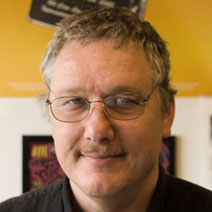 Professor Joseph D. Straubhaar’s primary teaching, research and writing interests are in global media, international communication and cultural theory, information societies and the digital divide in the U. S. and other countries, and global television production and flow. His graduate teaching includes media theory, global media, comparative media systems, international telecommunications systems, Latin American media, and research methods. His undergraduate teaching covers the same range plus introduction to mass communication and the information society. He does research in Brazil, other Latin America countries, Europe, Asia and Africa, and has taken student groups to Latin America and Asia. He has done seminars abroad on media research, television programming strategies, and telecommunications privatization.
Professor Joseph D. Straubhaar’s primary teaching, research and writing interests are in global media, international communication and cultural theory, information societies and the digital divide in the U. S. and other countries, and global television production and flow. His graduate teaching includes media theory, global media, comparative media systems, international telecommunications systems, Latin American media, and research methods. His undergraduate teaching covers the same range plus introduction to mass communication and the information society. He does research in Brazil, other Latin America countries, Europe, Asia and Africa, and has taken student groups to Latin America and Asia. He has done seminars abroad on media research, television programming strategies, and telecommunications privatization.
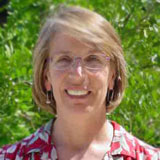 Sharon Strover is the Philip G. Warner Regents Professor in Communication and former Chair of the Radio-TV-Film Department at the University of Texas, where she teaches communications and telecommunications courses and directs the Telecommunications and Information Policy Institute. Some of her current research projects examine statewide networks and advanced broadband services; the relationship between economic outcomes and investments in digital media programs in higher education; social media; the digital divide; rural broadband deployment; e-government; telecommunications infrastructure deployment and economic development in rural regions; and market structure and policy issues for international audio-visual industries. One recent research project examines the impact of newly acquired broadband in four communities across four years of deployment efforts, a study funded by the Department of Agriculture. She is also working on the Connected Viewing project, looking at how people use new platforms and devices for entertainment purposes. In 2010 she stepped down from her eight-year stint chairing the RTF Department in order to work on the USDA’s Broadband Initiatives Program in Washington D.C., after which she returned to the University of Texas.
Sharon Strover is the Philip G. Warner Regents Professor in Communication and former Chair of the Radio-TV-Film Department at the University of Texas, where she teaches communications and telecommunications courses and directs the Telecommunications and Information Policy Institute. Some of her current research projects examine statewide networks and advanced broadband services; the relationship between economic outcomes and investments in digital media programs in higher education; social media; the digital divide; rural broadband deployment; e-government; telecommunications infrastructure deployment and economic development in rural regions; and market structure and policy issues for international audio-visual industries. One recent research project examines the impact of newly acquired broadband in four communities across four years of deployment efforts, a study funded by the Department of Agriculture. She is also working on the Connected Viewing project, looking at how people use new platforms and devices for entertainment purposes. In 2010 she stepped down from her eight-year stint chairing the RTF Department in order to work on the USDA’s Broadband Initiatives Program in Washington D.C., after which she returned to the University of Texas.
Cinematography
Steve Mims
18 June 18 to 6 July at FCSH/UNL, Lisbon
(14h-17h)
ECTS 4
Fee: 40€
In this class students will learn production and post-production concepts, strategies and techniques for creating advanced documentary projects. The class is structured around creation of a short collaborative documentary (groups of two) to shoot and edit a six minute short during the course. The course will focus on filmmaking strategies to optimize visual and audio design by utilizing lighting, lenses and camera placement for both interviews and verite filming. Post-production will focus on a contemporary streamlined workflow with particular emphasis on an editorial organization and decision making. The class will analyze shooting and editorial decisions from successful documentary films for reference.
 Austin filmmaker Steve Mims' award-winning short films have screened widely in festivals and on television. The New York Times' Vincent Canby called his film Aunt Hallie "A treasure...which belongs on everybody's list of the top ten funniest films ever made." His film Southfork Pilgrims profiled rabid fans of the TV series DALLAS. His most recent award-winning film, Incendiary: The Willingham Case (co-directed by Joe Bailey, Jr.) premiered at SXSW and on the east coast at Silverdocs. In the fall of 2011 Incendiary went into limited theatrical release and garnered excellent reviews nationwide. Ann Hornaday of the Washington Post called it: “Nonfiction filmmaking at its most classic. Crime, punishment, morality and hardball politics make for an explosive narrative mix all their own.” Incendiary was released digitally in 2012.
Austin filmmaker Steve Mims' award-winning short films have screened widely in festivals and on television. The New York Times' Vincent Canby called his film Aunt Hallie "A treasure...which belongs on everybody's list of the top ten funniest films ever made." His film Southfork Pilgrims profiled rabid fans of the TV series DALLAS. His most recent award-winning film, Incendiary: The Willingham Case (co-directed by Joe Bailey, Jr.) premiered at SXSW and on the east coast at Silverdocs. In the fall of 2011 Incendiary went into limited theatrical release and garnered excellent reviews nationwide. Ann Hornaday of the Washington Post called it: “Nonfiction filmmaking at its most classic. Crime, punishment, morality and hardball politics make for an explosive narrative mix all their own.” Incendiary was released digitally in 2012.
Experimental Animation
Jeanne Stern
25 June to 13 July at FEUP, Porto
(17h-20h)
ECTS 6
Fee: 60€ to students/ 150€ to non-students
In this class students will create animated microcosms that have their own conceptual and material rules. Students will focus particularly on the representation of space in film and on visual motion, rather than on traditional narrative. In addition to learning animation techniques, students will learn about the theory and history of experimental animation and video installation.
In the first week, the class will produce group projects using novel techniques. They will construct a three-dimensional world out of paper; this installation will be used to create multiple short videos, including a stereoscopic (3D) slide show, and a moving camera piece. There will also be an exercise in “toy” animation using simple mechanical and optical devices.
Students will then work in pairs to create “worlds” of their own. These projects will be inspired by a variety of sources such as literature, maps, and botany. The pairs will work together to define the “rules” of their worlds, and to produce visual and motion studies. This work will culminate in a short film or video installation of their world.
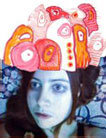 Jeanne Stern creates surreal microcosms using animation and experimental puppetry techniques. Her work deals with themes of memory, duality, spatial illusion, gender, and play. It has shown in a variety of festivals and galleries including the Smithsonian, South by Southwest, PBS, San Diego Women’s Film Festival, “Y Que” at Landmark Arts, Orlando Museum of Art, and is currently on tour with Heather Henson’s traveling festival Handmade Puppet Dreams.
Jeanne Stern creates surreal microcosms using animation and experimental puppetry techniques. Her work deals with themes of memory, duality, spatial illusion, gender, and play. It has shown in a variety of festivals and galleries including the Smithsonian, South by Southwest, PBS, San Diego Women’s Film Festival, “Y Que” at Landmark Arts, Orlando Museum of Art, and is currently on tour with Heather Henson’s traveling festival Handmade Puppet Dreams.
Jeanne received her MFA in Film production from the University of Texas at Austin, and her BA in Studio Art from Connecticut College. In 2008 she completed a residency and new media commission for the Connecticut College Arts & Technology Symposium, and in 2009 she was an artist-in-resident at the Elsewhere Elsewhere Artist Collective. She currently lives in Austin where she works as an animator and artist.
Human-Computer Interaction
Luis Francisco-Revilla
2 July to 21 July at FEUP, Porto
(14h-17h)
ECTS 4.5
Fee: 60€ to students/ 150€ to non-students
Students in this course will develop an overarching view of the field of Human-Computer Interaction (HCI). Students in this course will develop their skills to envision, and evaluate novel information interaction systems. The goal of the reading assignments is that every student develops an overarching view of the field of HCI including the areas of interaction design, social interaction, emotional interaction, interfacing, and empirical methods in HCI. Consequently, it is expected of every student to read all chapters and papers, understand them, and participate actively in the class discussions. The course will also include class presentations and a final exam.
 Luis Francisco-Revilla's research interests include information systems, digital libraries, intelligent user interfaces, information delivery, spatial hypermedia, human-computer interaction, computer-supported cooperative work. Luis received his Ph.D. in Computer Science from Texas A&M University in 2004. His doctoral dissertation on Multi-model Adaptive Spatial Hypermedia delivered the MASH framework and the WARP system. Luis also holds a MS in Computer Science from Texas A&M University and a Bachelors degree in Electronic and Communications Engineering from the Universidad Iberoamericana in Mexico City. During his stay at Texas A&M University, Luis worked in several projects including Walden’s Paths, Path Manager and the Visual Knowledge Builder. His work has been published in several international journals and conferences such as: International Journal on Digital Libraries, ACM/IEEE Joint Conference on Digital Libraries, and Hypertext.
Luis Francisco-Revilla's research interests include information systems, digital libraries, intelligent user interfaces, information delivery, spatial hypermedia, human-computer interaction, computer-supported cooperative work. Luis received his Ph.D. in Computer Science from Texas A&M University in 2004. His doctoral dissertation on Multi-model Adaptive Spatial Hypermedia delivered the MASH framework and the WARP system. Luis also holds a MS in Computer Science from Texas A&M University and a Bachelors degree in Electronic and Communications Engineering from the Universidad Iberoamericana in Mexico City. During his stay at Texas A&M University, Luis worked in several projects including Walden’s Paths, Path Manager and the Visual Knowledge Builder. His work has been published in several international journals and conferences such as: International Journal on Digital Libraries, ACM/IEEE Joint Conference on Digital Libraries, and Hypertext.

 News
News
